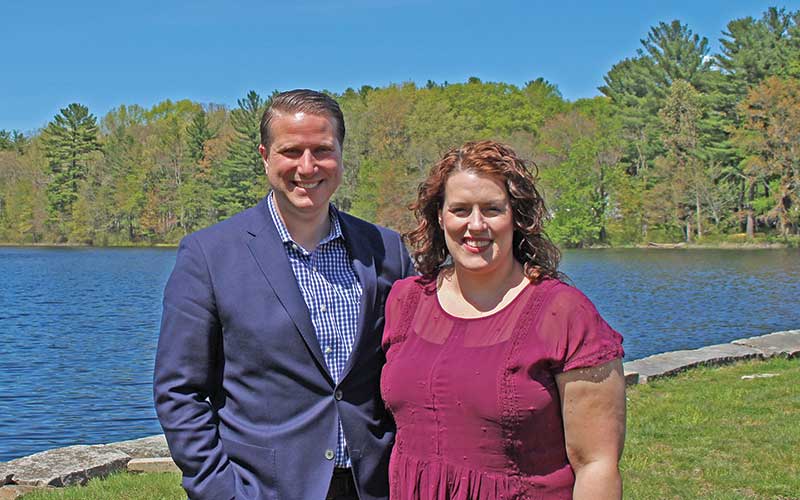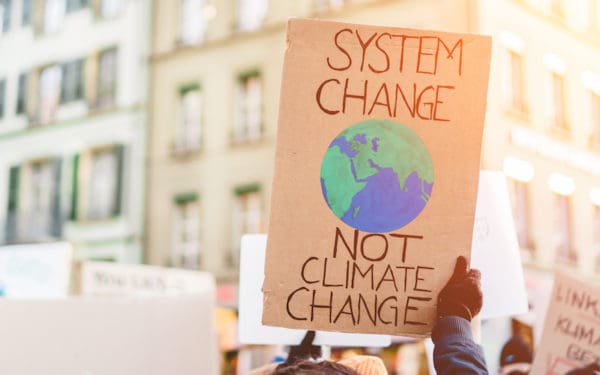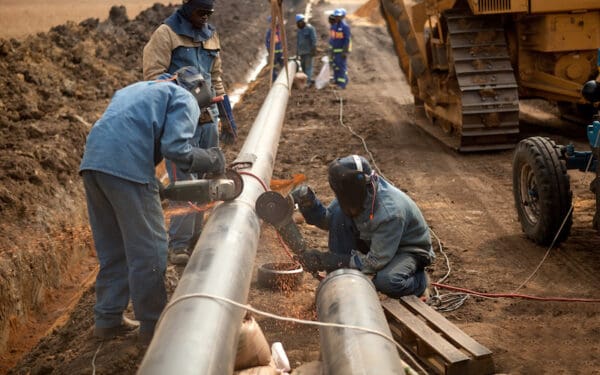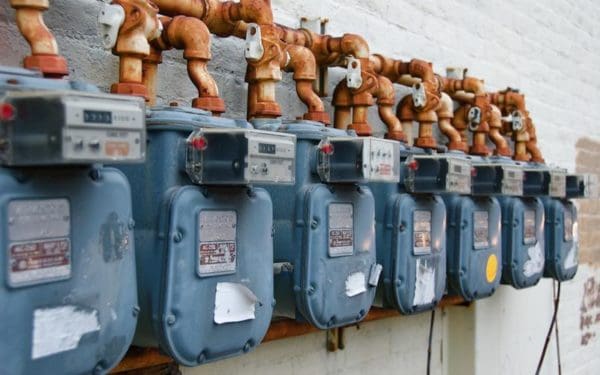
Jason and Erin Olkowski are on the frontlines of the climate fight – not just in their hometown, but for all of New England.
How One Community’s Fight Could Shape the Future of New England
Jason and Erin Olkowski never saw themselves as activists and community organizers. They were aware of climate concerns, of course, but had never stood on the frontlines of the climate battle themselves.
That all changed when Invenergy came to their small Rhode Island town, with its plans to build a massive new natural gas plant next door to family homes and within a pristine conservation area.
The company tried to use slick PR tactics to persuade residents that its new power plant would benefit them, but the Olkowskis weren’t convinced. The idea of their peaceful New England town being overtaken by the crash and hum and belting pollution of a large-scale power plant was disturbing enough in itself.
But their personal mission to protect their hometown soon grew into a broader understanding of what it takes to fight back against pollution, poor energy choices, and climate change.
Their takeaway: Fighting climate change starts at home, with community education and local battles like this one.
“Climate change is a macro issue, but needs to be fought at the micro level,” says Jason. “It really can be won and lost locally.”
It’s also a battle that’s easier waged with help. “Fighting against the system takes organizations like CLF to work at the local level against the big fossil fuel companies,” continues Jason. “And if we’re going to win, leaders need to feel like there’s a tidal wave of support [from both organizations and everyday people].”
For CLF, that tidal wave has included challenging the plant’s permit at the state Energy Facility Siting Board (which approves new power plants), confronting Invenergy for failing to provide information to state agencies charged with evaluating the gas plant proposal, and helping craft legislation that would make such stonewalling illegal. Most recently, CLF filed a lawsuit asserting that the company’s plans to buy water from the Town of Johnston to run the plant is illegal.
Back on the ground in Burrillville, the Olkowskis have worked to educate friends and neighbors about the dangers the plant poses – to the town, to the local environment, and to the climate. Together with other concerned residents, they have amassed a small army of opposition. “You can engage people in bite-sized ways,” says Erin. “People want to do the right thing, but can be paralyzed by the enormity of the problem.”
To date, local residents have spoken out at hearings of the Energy Facility Siting Board, called their legislators, and worked with community leaders in nearby towns to bolster their cause. The outcome of this particular fight reaches far beyond Burrillville, however. This plant is just one of several proposed gas plants currently in the works across the region. New England has the opportunity to be a leader in the transition to an economy built on clean, local, renewable energy. But simply trading dirty coal for dirty gas will scuttle any hope of the region being able to cut its carbon pollution enough to make a meaningful difference in the climate crisis.
Ultimately, the Olkowskis and their neighbors are fighting for the future of their community, but what they are shaping is the future of New England. As Jason says, “there’s bigger work to be done.”




